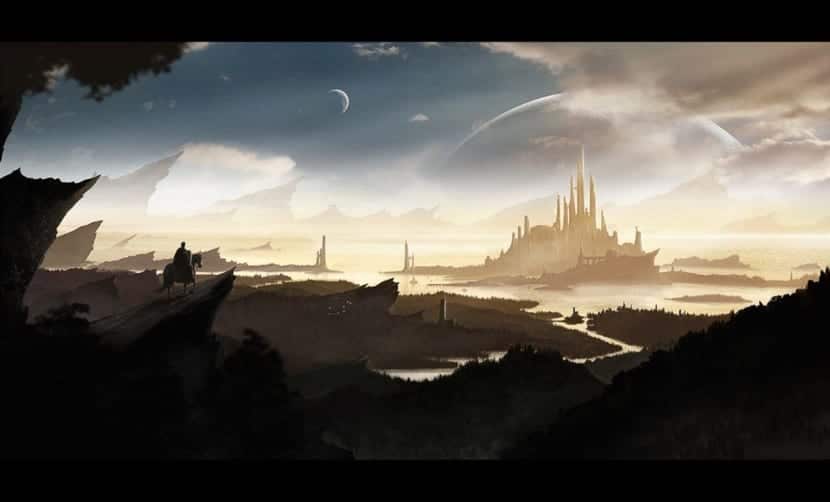
Perhaps at some point in your life you have used the word 'utopia'. It is a term that is often used to refer to what would be perfect, a reality that could be perfect, but do we really use this term well, what exactly is it? Utopia is therefore a term used to refer to an imagined place where everything is perfect.
It is used to describe an imaginary world where social justice exists, as the principles to guarantee it. Utopia symbolizes people's hopes and dreams. Utopia becomes synonymous with impossible because an ideal life in a perfect society that it offers seems to be out of reach of the people.
Where does it come from
The authors of utopias represent societies similar to theirs, but better organized. They also offer a detailed plan of how we can create such a society and how it could be managed. The term was taken from the novel Utopia by Thomas More, published in 1551, in which he described an ideal society based on equality, economic and political prosperity and where poverty and misery were eradicated. Thomas More's utopia is inspired by Plato's Republic, considered the first utopian novel.
The most important utopian works include Edward Bellamy's "Looking Back" (1888); HG Wells's Modern Utopia (1905) and The Shape of Things to Come (1933); The Dispossessed by Ursula K. Le Guin (1974), among others.

Optimism and pessimism in utopia
There are optimistic and pessimistic views, the narratives that reflect the optimistic world view could be called utopias and the narratives that reflect the pessimistic worldview could be called dystopias.
Dystopias challenge utopia's assumption of human perfectionism and deny the possibility of perfect societies. Dystopia uses the description of a negative future and describes what will happen if certain current trends continue ... that is, it is a negative view of the world taking into account how it is evolving. Like utopias, dystopias suggest and represent the possibility of changing society, but, unlike utopias, they do not offer them any hopeful solution and they do not accept a radically new future ... They think that things can change but based on reality with a not very positive approach to what could happen in the future.
Utopian history is usually set in an isolated place, and people live there according to the principles of that place. A far away place where everything could be perfect that now is not. There is a dictated and enacted ruling class, which is often regarded as idealistic in practice towards society and establishes a society that has almost reached perfection, in an idealized world that does not really exist. Unlike utopian politics, dystopian governments are oppressive, and citizens of dystopian society do not have a positive opinion of them.

Looking at the future
Both utopias and dystopias are set in the future and feature the same elements, but in different connotations, for example more advanced science and technology. We look to the future but with different perspectives, taking into account today's society and what is thought of it.
In utopian stories, it is believed that more advanced technology and science are used to improve human living conditions, such as the absence of death and suffering. In dystopian stories, the most advanced technology is available only to the group in power to ameliorate their oppression. Unlike utopian fiction, which often features a stranger as the protagonist, dystopias rarely do that. The creation of imaginary worlds of dystopia and utopia is probably based on the author's optimistic or pessimistic perception of the world.
The utility of utopia in society
As you can see, utopia is a broad concept that is commonly used but has also been used for a long time by philosophers, thinkers, politicians and many authors. But why is abstract thinking used to create a reality where it could be perfect? A perfection that may never exist, but in reality, is in the minds of people to try to improve current society and present and future experiences.
Utopia can be much more useful than you can imagine, it has functions that when this term is used are not taken into account, but which is more powerful than we can imagine. People want to create an idyllic function, without imperfections, and although it is impossible to create it really does have some functions that are worth noting:
Critical function
Utopia serves to criticize today's society, to see what is wrong and what could be improved. It is a way of seeing what the present social system serves and being able to assess the need for a change in any current aspect, although it is usually taken into account in a political change.

Evaluative function
Utopia is also used to know the influence it can have on different societies. Utopias can serve to reflect on the methods of social organization and to better understand the social political system.
Create hope function
Utopia also fills people's hearts with hope. It is a way in which the human being looks to the future with hope, wanting to improve things, trying to make everything work correctly, seeing the failures to improve in the future. In this way what is attempted is make people see that a better future is possible, as long as you really want and want to improve.
Orientation function
This function is very important because it is what establishes objectives and goals for now and in the future. Setting a long-term goal allows people and society not to get stuck in a false reality. You think about how you want to live in the future and you fight to achieve it.